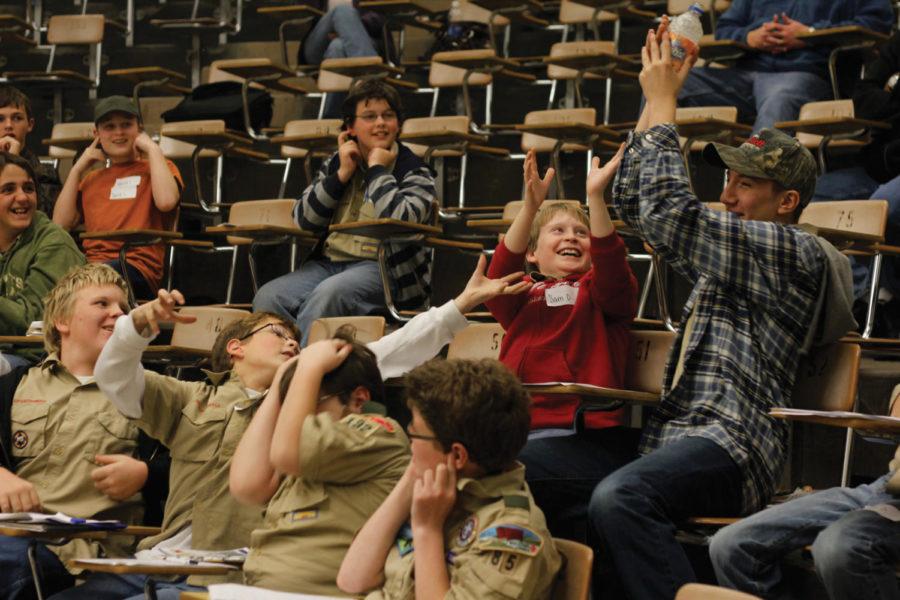Boy Scouts visit campus to participate in annual Merit Badge University
November 14, 2010
Approximately 350 Boy Scouts came to Iowa State on Saturday for an educational experience of their own.
Alpha Phi Omega, a national service fraternity, took the lead in organizing this year’s Merit Badge University, a program which brings Boy Scouts from the Broken Arrow District, which includes Hamilton, Green, Boone and Story counties, said John Yasenko, Broken Arrow district executive for Boy Scouts of America.
The Boy Scouts came to work with the 105 volunteers that Alpha Phi Omega organized to work at MBU. The volunteers ranged from Alpha Phi Omega counselors to professors and student volunteers, who provided the information and expertise required to help the Scouts earn one of the 31 merit badges offered.
The badges offered ranged from space exploration to automative maintenance. One of the hardest parts of organizing the event was finding someone available to teach each merit badge, which was a task Derek Ebel began arranging last summer.
“We have had a really good turnout,” said Ebel, Alpha Phi Omega member and senior in mechanical engineering. “It’s the first time that Alpha Phi Omega, Xi Chapter, has put this together. This was the first time we actually experienced it ourselves and all the work that it took.”
The fraternity has been involved with the event in the past, helping at other campuses, said Linda Dedecker, Alpha Phi Omega adviser.
“I’m really impressed with how well everything has gone this year,” Dedecker said. “[APO organizers and volunteers] have truly been showing leadership.”
Managing the Merit Badge University was one of the biggest projects that Alpha Phi Omega has taken on since Ebel has been involved with the service fraternity.
“I think overall it went really well,” said Lauren Wolyniec, Alpha Phi Omega member, Merit Badge University volunteer and sophomore in child, adult and family services. “I think it was probably really cool for [the Boy Scouts] to come to a college campus and learn from college students who are actually learning about what they’re teaching.”
The experience with the college-aged volunteers helps the Scouts, who can join from sixth grade until they reach age 18, progress through the ranks of the Boy Scouts, but also instills them with positive views toward a college education.
“The biggest benefit is that right now the Scouts that we have are at a very impressionable age and … they get that peer-to-peer and that older, positive peer association,” Yesanko said. “The biggest thing that’s good for them is they get that idea in their head, they’re at a young age when they’re still in middle school and early high school, how fun it is to be at a college and to learn things that they choose and that they can really enjoy, so it’s similar to college for them.”
The Merit Badge University is just one of many service events that Alpha Phi Omega partakes in throughout the semester. As a coed service fraternity, members are required to perform a minimum of 20 service hours per semester.
With the success of this year’s Merit Badge University, Alpha Phi Omega plans to continue working with the Boy Scouts of America to organize the event each fall at Iowa State.







